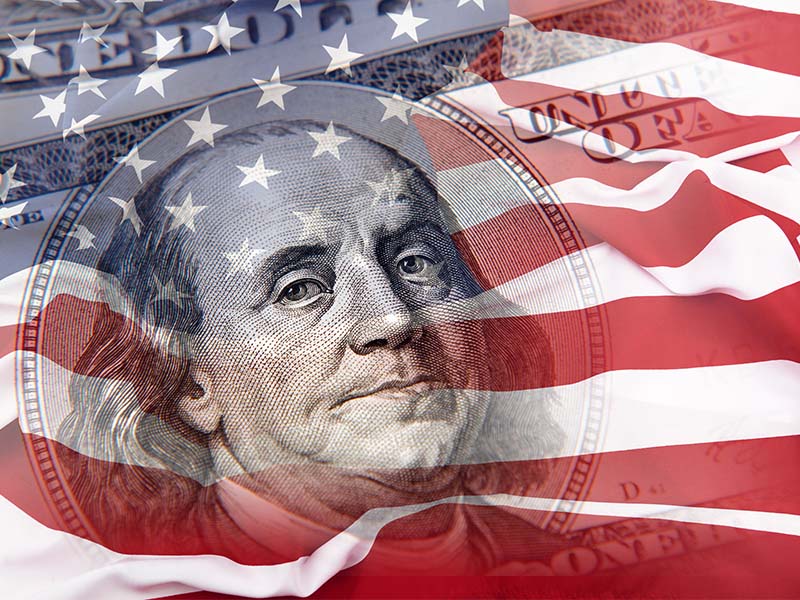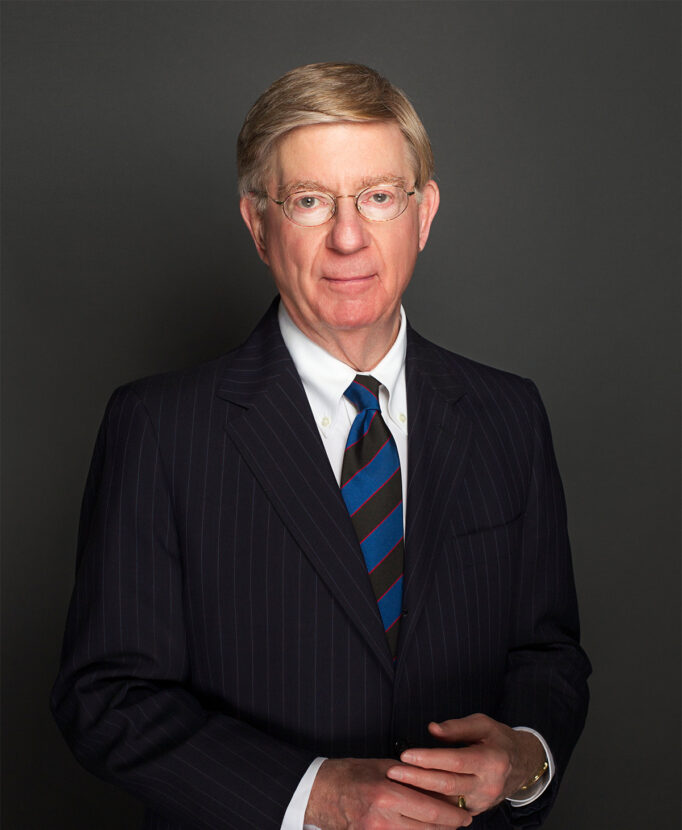Exclusive
Decline Is a Choice That Americans Decline to Make
America’s foremost political columnist George Will explores the different ties between politics and economics in the United States. The first rule of economics is: Scarcity is real. Resources are limited, appetites are not, so hard choices are necessary. But the first rule of politics is: Ignore the first rule of economics.

Political polarization is real, but there is, unfortunately, this much bipartisanship: Both parties are at fault for the nation’s perilous fiscal dilemma. We have made promises to ourselves in entitlement programs that depend on robust economic growth to generate the requisite revenues to pay for those promises. But the weight of the entitlements, which are about 67 percent of federal spending, can suffocate economic growth.
We have accumulated a $31 trillion national debt, much of it during very low—often negative—real interest rates, and on the assumption that low rates would last for (as economists like to say) “the foreseeable future.” But in September 1929 the foreseeable future did not extend to October. In May 2008 the foreseeable future did not extend to September. So, when—not if, when—the cost of government borrowing goes back to something like the post-1945 norm of, say, 5 percent, the budget might explode. Debt service costs will crowd out other spending, for social programs and national security–as we borrow more money to pay the interest on the money we have borrowed.
Such bad news tends to crowd out the good news. As journalists like to say, “We don’t report the planes that land safely.” But good news is news, and it is abundant because of this: American economic dynamism is still vigorous. Ask yourself: If you had a few hundred million dollars burning a hole in your pocket, in what country would you want to invest it? This is not a close call: The United States.
It has been said that the story of the Bible, reduced to one sentence, is this: God created men and women and promptly lost control of events. Americans like it this way—an uncontrolled present producing an unpredictable future. Unpredictable, but invariably replete with improvements.
Small entities can become big quickly: In 1994, Amazon was an online book seller in Seattle. And big entities are not immortal. This is one reason we should not succumb to “monopoly fatalism”—the belief that something that is big and powerful will be so forever.
In 1935, there were 15,000 A&P grocery stores, one for every 9,000 Americans. When is the last time you were in one? Piggly Wiggly and other competitors had better ideas. In the 1970s, the Department of Justice’s anti-trust division worried about Kodak’s possible monopoly on film, and IBM’s possible monopoly on office typewriters. (Many millions of Americans will have to ask their parents what a typewriter was.) In 1997, Yahoo was the dominant search engine; but also in 1997 Google was founded. Twenty years ago, AOL dominated instant messaging. In November 2007, the cover of Forbes magazine asked whether anyone could challenge “the cell phone king”: Nokia. Five months earlier something called an iPhone had come to market.
Some of society’s problems are the results of society’s successes. Consider longevity. In an entitlement state, where the government provides pensions and medical care for the elderly, people living longer is expensive. But it beats the alternative.
Also, and relatedly, consider how medicine has changed. In 1900, most Americans were born at home and died at home, and the most that medicine could do when they became sick was make them more or less comfortable while nature healed them or killed them. In 1900, Americans spent twice as much on funerals as on medicine. In 1900, if we had had national income statistics (which we did not), the health care sector would have been too negligible to notice. Today, the health care sector of the U.S. economy is larger than all but four national economies. In 1900, only 17 percent of deaths were of people over 65; today 75 percent are.
America is a big nation with commensurately big problems, but no one ever got rich betting against America. It is still the most exhilarating laboratory of liberty, where humanity’s future is shaped. America’s glittering future depends on changing the first rule of politics (see above, paragraph one). Which means it is in our hands.
Events aren’t easy, but working with WSB is. WSB works with thousands of respected influencers, thought leaders, and speakers each year and our experienced sales team is committed to the success of your event. For more political speaker ideas, please contact us.
